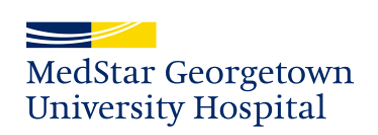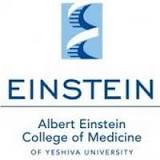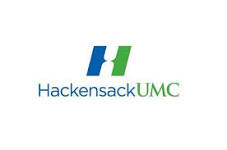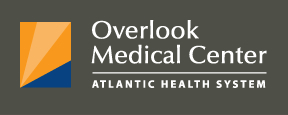Randomized Study of ON 01910.Na in Refractory Myelodysplastic Syndrome Patients With Excess Blasts
| Status: | Active, not recruiting |
|---|---|
| Conditions: | Blood Cancer, Hematology |
| Therapuetic Areas: | Hematology, Oncology |
| Healthy: | No |
| Age Range: | 18 - Any |
| Updated: | 7/25/2018 |
| Start Date: | November 2010 |
| End Date: | February 2019 |
Phase III MultiCenter Randomized Controlled Study to Assess Efficacy and Safety of ON 01910.Na 72-Hr Continuous IV Infusion in MDS Patients With Excess Blasts Relapsing After or Refractory to or Intolerant to Azacitidine or Decitabine
The primary objective of this study is to compare overall survival (OS) in patients receiving
ON 01910.Na + best supportive care (BSC) to OS of patients receiving BSC in a population of
patients with myelodysplastic syndrome (MDS) with excess blasts (5% to 30% bone marrow
blasts) who have failed azacitidine or decitabine treatment. This patient population has no
available therapy and a short life expectancy (approximately 4 months). The high level of
bone marrow activity of ON 01910.Na documented in Phase 1 and 2 studies has the potential to
delay substantially the transition of MDS to Acute Myeloid Leukemia(AML), a very significant
and severe complication, which shortens survival of these MDS patients.
ON 01910.Na + best supportive care (BSC) to OS of patients receiving BSC in a population of
patients with myelodysplastic syndrome (MDS) with excess blasts (5% to 30% bone marrow
blasts) who have failed azacitidine or decitabine treatment. This patient population has no
available therapy and a short life expectancy (approximately 4 months). The high level of
bone marrow activity of ON 01910.Na documented in Phase 1 and 2 studies has the potential to
delay substantially the transition of MDS to Acute Myeloid Leukemia(AML), a very significant
and severe complication, which shortens survival of these MDS patients.
This is a Phase III open-label, randomized, controlled, multicenter study (up to 50 centers).
Approximately 270 patients with MDS classified as RAEB-1 and RAEB-2 using the WHO
classification and as RAEB-t and chronic myelomonocytic leukemia (CMML) using the FAB
classification who failed, became intolerant to, or progressed after treatment with
5-azacitidine or decitabine administered during the past 2 years, will be randomized in a 2:1
ratio into the following 2 treatment regimens:
- Best Supportive Care (BSC) + ON 01910.Na 1800 mg/24 hr administered as a 72-hr
continuous intravenous (CIV) infusion on Days 1, 2, and 3 of a 2-week cycle (N =
approximately 180 patients)
- BSC (N = approximately 90 patients).
Patients will be stratified at entry by bone marrow (BM) blasts (5% to 19% vs. 20% to 30%).
After completing the first eight 2-week cycles (i.e., after 16 weeks of treatment), the
frequency of further 72-hr CIV infusions will be decreased to an administration on Days 1, 2,
and 3 of a 4-week cycle.
Patients will remain treated on study until 2006 International Working Group (IWG)
progression criteria are met (i.e., 50% increase of BM blasts or worsening of cytopenias) or
until death from any cause, whichever comes first.
Patients who progress to Acute Myeloid Leukemia (AML) while on study should be offered either
standard treatment for AML or enrollment in an appropriate investigational study if they are
eligible. These treatments with their start and end dates should be documented and patient
survival time will be documented for all randomized patients.
Cross-over of BSC patients to ON 01910.Na after progression will not be allowed. However,
patients in the BSC-only group will be allowed, as medically justified, access to low-dose
cytarabine 20 mg/m2 subcutaneously (SC) once daily for the first consecutive 14 days of each
28-day cycle, up to 4 cycles, until progression or unacceptable toxicity develops. Low-dose
cytarabine will be delayed as needed until recovery of blood counts. All study participants
will be allowed, as medically justified, access to RBC and platelet transfusions and to
growth factors (erythropoietin, Filgrastim [G-CSF]). Hydroxyurea will be allowed to manage
blastic crisis with hyperleukocytosis when patients transition to leukemia.
Approximately 270 patients with MDS classified as RAEB-1 and RAEB-2 using the WHO
classification and as RAEB-t and chronic myelomonocytic leukemia (CMML) using the FAB
classification who failed, became intolerant to, or progressed after treatment with
5-azacitidine or decitabine administered during the past 2 years, will be randomized in a 2:1
ratio into the following 2 treatment regimens:
- Best Supportive Care (BSC) + ON 01910.Na 1800 mg/24 hr administered as a 72-hr
continuous intravenous (CIV) infusion on Days 1, 2, and 3 of a 2-week cycle (N =
approximately 180 patients)
- BSC (N = approximately 90 patients).
Patients will be stratified at entry by bone marrow (BM) blasts (5% to 19% vs. 20% to 30%).
After completing the first eight 2-week cycles (i.e., after 16 weeks of treatment), the
frequency of further 72-hr CIV infusions will be decreased to an administration on Days 1, 2,
and 3 of a 4-week cycle.
Patients will remain treated on study until 2006 International Working Group (IWG)
progression criteria are met (i.e., 50% increase of BM blasts or worsening of cytopenias) or
until death from any cause, whichever comes first.
Patients who progress to Acute Myeloid Leukemia (AML) while on study should be offered either
standard treatment for AML or enrollment in an appropriate investigational study if they are
eligible. These treatments with their start and end dates should be documented and patient
survival time will be documented for all randomized patients.
Cross-over of BSC patients to ON 01910.Na after progression will not be allowed. However,
patients in the BSC-only group will be allowed, as medically justified, access to low-dose
cytarabine 20 mg/m2 subcutaneously (SC) once daily for the first consecutive 14 days of each
28-day cycle, up to 4 cycles, until progression or unacceptable toxicity develops. Low-dose
cytarabine will be delayed as needed until recovery of blood counts. All study participants
will be allowed, as medically justified, access to RBC and platelet transfusions and to
growth factors (erythropoietin, Filgrastim [G-CSF]). Hydroxyurea will be allowed to manage
blastic crisis with hyperleukocytosis when patients transition to leukemia.
Inclusion Criteria:
- MDS diagnosis confirmed within 6 weeks prior to entry according to WHO or FAB
classification
- MDS classified as follows, according to WHO and FAB classification:
- RAEB-1 (5% - 9% BM blasts)
- RAEB-2 (10% - 19% BM blasts)
- CMML (10% - 20% BM blasts) and WBC < 13,000/μL
- RAEB-t (20% - 30% BM blasts), with following criteria:
- o WBC < 25 x 10E9/L at entry
- o Stable WBC at least 4 weeks prior to entry and not requiring intervention for
WBC control with hydroxyurea, chemotherapy, or leukopheresis.
- At least one cytopenia (ANC < 1800/µL or platelet count < 100,000/µL or hemoglobin <10
g/dL)
- Progression according to 2006 International Working Group (IWG) criteria any time
after start of azacitidine or decitabine during past 2 years; or failure to achieve
complete or partial response or hematological improvement (according to 2006 IWG)
after at least six 4-week cycles of azacitidine or four 6-week cycles of decitabine
during past 2 years; or relapse after initial complete or partial response or
hematological improvement (according to 2006 IWG criteria) observed after at least six
4-week cycles of azacitidine or four 6-week cycles of decitabine during past 2 years;
or, intolerance to azacitidine or decitabine defined by drug-related ≥Grade 3 liver or
renal toxicity leading to discontinuation during the past 2 years.
- Did not respond to, relapsed after, not eligible for, or opted not to do bone marrow
transplantation
- Off other MDS treatments for at least 4 weeks; Filgrastim (G-CSF) and erythropoietin
allowed before and during the study as clinically indicated.
- No need for induction chemotherapy
- ECOG status 0, 1 or 2
- Willing to adhere to protocol prohibitions and restrictions
- Patient (or a legally authorized representative) must sign informed consent form to
indicate patient's understanding study's purpose and procedures and willingness to
participate
Exclusion Criteria:
- Anemia due to factors other than MDS (including hemolysis or gastrointestinal
bleeding) unless stabilized for 1 week after RBC transfusion.
- Any active malignancy within the past year, except basal cell or squamous cell skin
cancer or carcinoma in situ of the cervix or breast
- Uncontrolled intercurrent illness including, but not limited to, symptomatic
congestive heart failure, unstable angina pectoris, or cardiac arrhythmia
- Active infection not adequately responding to appropriate therapy
- Total bilirubin ≥1.5 mg/dL not related to hemolysis or Gilbert's disease.
- Alanine transaminase (ALT)/aspartate transaminase (AST) ≥2.5 x upper limit of normal
(ULN)
- Serum creatinine ≥2.0 mg/dL
- Ascites requiring active medical management including paracentesis, or hyponatremia
(defined as serum sodium value of <130 mEq/L)
- Pregnant or lactating females
- Patients unwilling to follow strict contraception requirements (including condom use
for males with sexual partners, and for females: prescription oral contraceptives
[birth control pills], contraceptive injections, intrauterine device, double-barrier
method [spermicidal jelly or foam with condoms or diaphragm], contraceptive patch, or
surgical sterilization) before entry and throughout the study
- Females with reproductive potential who do not have a negative urine beta-human
chorionic gonadotropin pregnancy test at screening
- Major surgery without full recovery or major surgery within 3 weeks of ON 01910.Na
treatment start
- Uncontrolled hypertension (defined as systolic pressure ≥160 mmHg and/or diastolic
pressure ≥110 mmHg)
- New onset seizures (within 3 months prior to first dose of ON 01910.Na) or poorly
controlled seizures
- Any other concurrent investigational agent or chemotherapy, radiotherapy, or
immunotherapy
- Prior treatment with low-dose cytarabine during past 2 years Investigational therapy
within 4 weeks of starting ON 01910.Na
- Psychiatric illness or social situation that limits the patient's ability to tolerate
and/or comply with study requirements
We found this trial at
42
sites
Dana-Farber Cancer Institute Since it’s founding in 1947, Dana-Farber has been committed to providing adults...
Click here to add this to my saved trials
Cleveland Clinic Cleveland Clinic is committed to principles as presented in the United Nations Global...
Click here to add this to my saved trials
Univ of Texas, Southwestern Med Ctr of Dallas The story of UT Southwestern Medical Center...
Click here to add this to my saved trials
Mount Sinai Med Ctr Founded in 1852, The Mount Sinai Hospital is a 1,171-bed, tertiary-care...
Click here to add this to my saved trials
1100 Fairview Avenue North
Seattle, Washington 98109
Seattle, Washington 98109
(206) 667-5000

Fred Hutchinson Cancer Research Center At Fred Hutchinson Cancer Research Center, our interdisciplinary teams of...
Click here to add this to my saved trials
Cleveland Clinic Florida Cleveland Clinic Florida, located in Weston, West Palm Beach, Palm Beach Gardens...
Click here to add this to my saved trials
1500 East Medical Center Drive
Ann Arbor, Michigan 48109
Ann Arbor, Michigan 48109
800-865-1125

University of Michigan Comprehensive Cancer Center The U-M Comprehensive Cancer Center's mission is the conquest...
Click here to add this to my saved trials
Click here to add this to my saved trials
Johns Hopkins Hospital Patients are the focus of everything we do at The Johns Hopkins...
Click here to add this to my saved trials
22 South Greene Street
Baltimore, Maryland 21201
Baltimore, Maryland 21201
410-328-7904

University of Maryland Greenebaum Cancer Center The University of Maryland Marlene and Stewart Greenebaum Cancer...
Click here to add this to my saved trials
Click here to add this to my saved trials
Albert Einstein College of Medicine The Albert Einstein College of Medicine of Yeshiva University is...
Click here to add this to my saved trials
171 Ashley Avenue
Charleston, South Carolina 29425
Charleston, South Carolina 29425
843-792-1414

Medical University of South Carolina The Medical University of South Carolina (MUSC) has grown from...
Click here to add this to my saved trials
Rush University Medical Center Rush University Medical Center encompasses a 664-bed hospital serving adults and...
Click here to add this to my saved trials
University of Chicago Medical Center The University of Chicago Medicine has been at the forefront...
Click here to add this to my saved trials
Click here to add this to my saved trials
Click here to add this to my saved trials
Hackensack University Medical Center Hackensack University Medical Center, part of the Hackensack University Health Network,...
Click here to add this to my saved trials
Click here to add this to my saved trials
Click here to add this to my saved trials
Click here to add this to my saved trials
Click here to add this to my saved trials
Click here to add this to my saved trials
Click here to add this to my saved trials
Click here to add this to my saved trials
Medical College of Wisconsin The Medical College (MCW) of Wisconsin is a major national research...
Click here to add this to my saved trials
Yale Cancer Center Yale Cancer Center combines a tradition of innovative cancer treatment and quality...
Click here to add this to my saved trials
Click here to add this to my saved trials
Click here to add this to my saved trials
Click here to add this to my saved trials
Click here to add this to my saved trials
Click here to add this to my saved trials
Click here to add this to my saved trials
Cancer Care Centers of South Texas At Cancer Care Centers of South Texas, we are...
Click here to add this to my saved trials
Click here to add this to my saved trials
Click here to add this to my saved trials
Click here to add this to my saved trials
Click here to add this to my saved trials
Click here to add this to my saved trials
Overlook Hospital Atlantic Health System
Click here to add this to my saved trials
3800 Reservoir Rd NW
Washington, District of Columbia 20007
Washington, District of Columbia 20007
(202) 444-2000

Georgetown University Hospital MedStar Georgetown University Hospital is a not-for-profit, acute-care teaching and research hospital...
Click here to add this to my saved trials
Click here to add this to my saved trials













